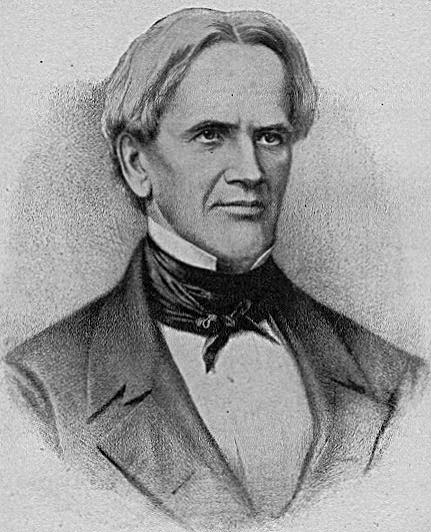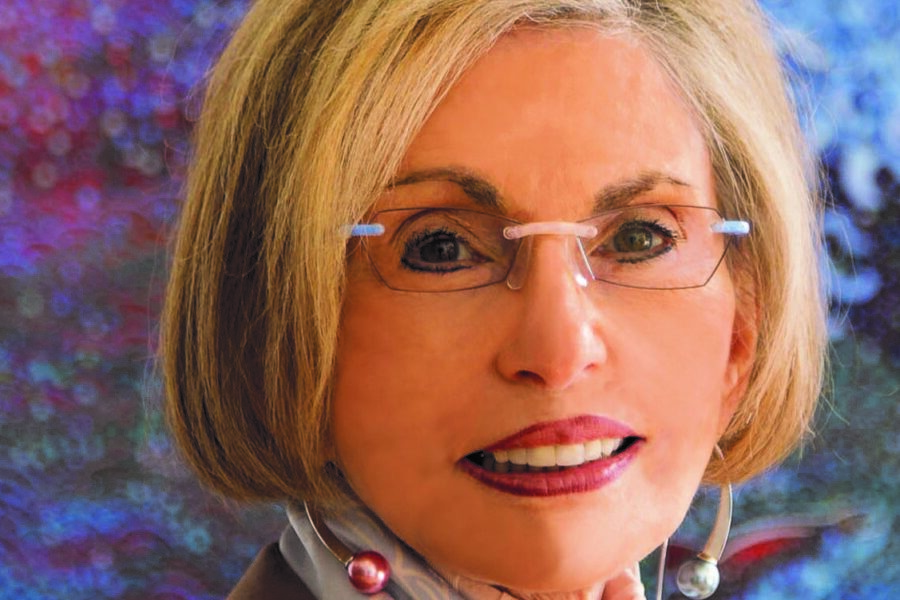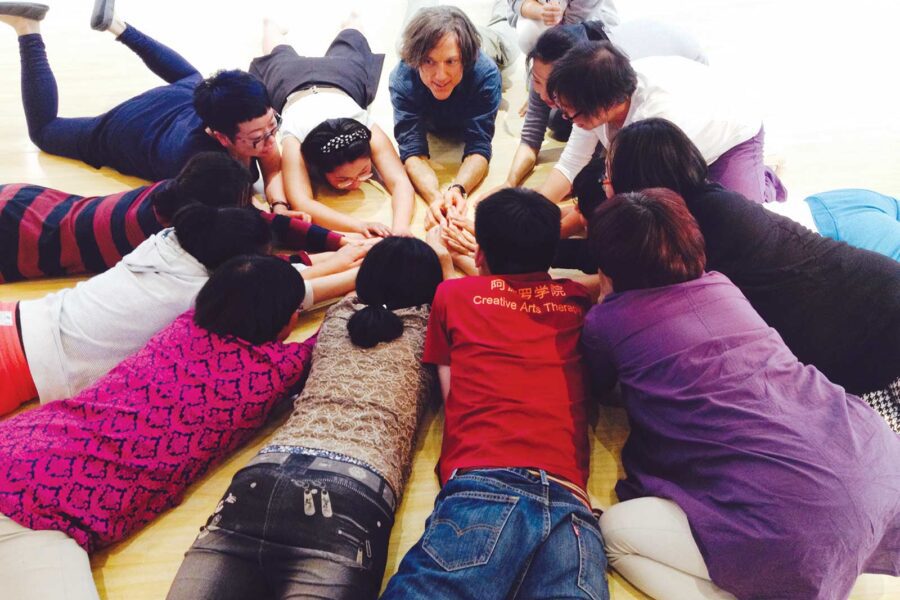I have often wondered what brought Horace Mann—this abolitionist, politician, Bostonian, and advocate of public education—to a small private struggling college in Yellow Springs, Ohio. Horace Mann believed in the fundamental role of education for democracy.
Laurien Alexandre
Provost, Antioch University Graduate School of Leadership and Change

While he was driven by a rather rigid moral code that makes me—a child of the 1960s—shudder, his core belief was that without effective schooling there could be no functioning democratic society. He came to Antioch to try that out at the college level. He saw higher education’s value to provide the analytic skills and moral capacity to cope with democratic disagreement.
Mann believed that democracy required not only the development of conventional learning but also the development of a “common spirit” among maturing citizens so that they could engage in democratic conversation and for that, he believed you needed to bring black and white, women and men together, to study together, to debate together, to learn from each other.
Horace Mann believed that every American needed to have sufficient education to differentiate truth from falsehood and to think critically about what they read and saw. That is why Mann advocated for education not just for elite, but for all races, classes, genders. It was the best insurance for democracy. He came to Antioch as an experiment in nonsectarian, experiential coeducation. It was about creating citizens who had the skills to engage in divergent thinking in a diverse America.
Those are our institutional roots.
While we always quote Mann’s challenge to the 1859 graduating class (“Be ashamed to die until you have won a victory for humanity”), let’s take note of his Antioch inaugural address in 1853 when he said, “Individuals can debase individuals. But it is governments that brutalize an entire race…NO limits can be affixed to the influences which the humblest institution or the humblest individual can exert.”
In other words, we all have a role to play—no matter how small, no matter how humble. For Horace Mann, it wasn’t just about what you thought. But what you did. It is well to think well but, he added, “It is divine to act well.”
And so Antioch has. There is abundant evidence of Antioch ‘acting well’ – at least from my lens. In his time, Mann was convinced America was in grave danger because its politics were so bitter, so partisan, so divided, and so vicious that he said, “The nation was at risk of splitting apart.” Two years after he died, the Civil War turned his fear into a reality.
Some 30 years after the College’s founding, and well after Mann was gone, on a Commencement Day in 1885, Antioch College dedicated a marble tablet to memorialize its students who had died in the Civil War. There were 31. The speaker on that day noted that those Antioch students were patriots. “From the lips and teachings of Horace Mann,” he said, “the lessons of universal brotherhood were learned, and an unalterable hostility to oppression and slavery was deeply instilled.”
Horace Mann was a hero to the cause of humanity. The speaker continued, “When other national leaders openly excused slavery, Horace Mann went forth, armed with “the trinity of truth, justice and mercy, and successfully threw them upon their chosen ground.” Mann’s voice was powerfully defiant and unwavering “when good men faltered” he stood up.
Carry that clarion call forward through the decades. In the late 1930s, College students raised money and collected donations on behalf of those trying to escape the death camps in Europe and come to America. In the early 1940s, with the help of the Quakers, Antioch College opened its doors and accepted Japanese-American students whose families were imprisoned in internment camps, separated behind bars.
It is well to think well but, he added,
-Horace Mann
“It is divine to act well.”
These examples speak to Mann’s belief that we should not be content to wait and see what will happen, but to have the “determination to make the right things happen.”
And so, again, in the late 1940s, Antioch President Douglas McGregor stood up for freedom of speech when he told the House committee investigating “unAmerican activities” (known as HUAC), that dissent and questioning authority was patriotic and American. He too defiantly said, “A college should contain people with what we at Antioch call a happy diversity of ideas, and we have them all. A big majority of them are like the people in this room – Republicans, Democrats and Independents. We have some on campus whom some might regard as unduly liberal. I believe the important criterion in this whole area is the person’s honesty, integrity and willingness to play within the democratic ground rules. As long as a person will operate on that level, we have nothing to fear.”
Once again, Antioch stood for the value of diverse perspectives and democratic disagreement as a strength of this country, not its weakness. When in September 1954 a renowned Antioch Professor of Art and Aesthetics was asked for (and refused) to name names of College faculty, he too stood up strong and proud as an American and as an Antiochian, with reasoned and principled resistance to the pressures of the Red Scare. He declined to reply on the grounds that answering might cause unnecessary harm to others, or would cause him to lose self-respect.
Again, Mann’s call to act well lived on. In the 1960s, in Yellow Springs, Ohio, Antiochians marched down the main street to protest a local barbershop that refused to cut the hair of Black customers. For months there were pickets and sit-ins. Then on a cold day in March 1964 officers in riot gear used night sticks and fire hoses, arrested villagers, and College faculty and students. The barbershop closed that day, refusing to integrate. It never reopened.
As we all know, Antioch College had an important role in the Civil Rights movement with students participating in The Freedom Summer. It was a continuation of Horace Mann’s call to stand up against the government’s brutalization of a race and the denial of democratic rights. To act well for the common good.
Getting involved.
Walking precincts. Welcoming neighbors.
Sitting in.
Speaking out.
Rising up.
Marching on.
Taking a knee.
Antiochians will take a stand.
The list could go on….but jumping to the present: Antiochians today study hard and continue to act well. Thousands of Antioch alumni are making a difference across the country and world. Antioch University Los Angeles provides its amazing Bridge Program to those living below the poverty line. Antioch University New England has students and faculty engaging in environmental justice projects across the state and world. And Antioch students and alumni march for the rights of all to love who they want, march to end gun violence, march for the rights of women and because Black Lives Matter.
Chancellor Bill Groves has taken public stands from his leadership perch to speak out against the Charlottesville demonstration, to oppose the U.S. pulling out of the Paris Climate Accord, to support the rights of Dreamers, and to keep our borders open to those who come to our shores from whatever country and religion.
It is in our roots that Antioch graduates should help reform and heal this nation. That is what Mann meant when he said, an Antioch education is to ‘win victories for humanity.’ Not for oneself but for humanity, for the values of democratic citizenship. So when you think of this institution, one of the humblest of higher education to be sure, our history is inseparable from this democratic experience.
And now, Antiochians cannot stand by and watch (the erosion of democracy?). So what do Antiochians do?
Antiochians remain members of a lifelong learning community as alumni, and have opportunities to work with and support future students, and to engage with each other as learners and professionals and change agents. But there is more. When tikki torches appear on our streets, when families are torn apart at our borders, when citizens are denied the right to vote, when journalists are attacked as the enemy, and when a fear-laced fury of emotional partisanship taps into resentment and rage….Antiochians have seen this before and Antiochians say ‘No, Not Here, Not Now, Never Again.’ We stand together.
At his 1965 commencement speech to the graduates of Antioch College, Martin Luther King, Jr. talked about creating a Beloved Community, caring for each other, not allowing someone to live in need when others have things” and he called on Antioch graduates “to do things to make the dream happen.”
In our time, making it happen means standing up. As we’ve seen in other Antioch generations, taking a stand meant being a patriot and fighting hate in lands abroad. In other Antioch generations, taking a stand meant being a patriot and fighting hate in this land, whether barbershops in Yellow Springs or voting rights in Freedom Summer.
In other Antioch generations, being a patriot meant standing up to bullies and those who wanted to silence freedom of speech and press.
Antiochians will not be silent…whether through their scholarship, their research, their writing, their loving, their marching, their letter-writing, their voting, their blogging, their posting. Getting involved. Walking precincts. Welcoming neighbors. Sitting in. Speaking out. Rising up. Marching on. Taking a knee. Antiochians will take a stand.
In his 2018 commencement address to Harvard Law School, then Republican Senator Jeff Flake concluded, “Circumstances may call on you to risk standing alone, risk even perhaps your career……but when circumstances call on one to risk career in favor of principles….you – and this country will be better for it. You can go elsewhere for a job but you cannot go elsewhere for a soul.”
At Antioch, we stand together to ‘act well,’ to make the dream of our democracy live on.”
REFERENCES: Bell, J. (2018) Lighting the Fires of Freedom: African American Women in the Civil Rights Movement. New York, New York: The New Press. Nussbaum, M. C. (2018). The Monarchy of Fear: A Philosopher Looks at Our Political Crisis. New York, New York: Simon & Schuster. Taylor, B. P. (2010). Horace Mann’s Troubling Legacy: The Education of Democratic Citizens. Lawrence, Kansas: University of Kansas Press


